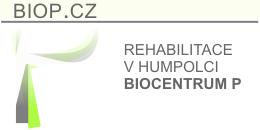

O Biocentru P
To Buy Valtrex Online Visit Our Pharmacy ↓
 Valtrex 101: Understanding Its Role in Herpes Management.
Valtrex 101: Understanding Its Role in Herpes Management.
Valtrex has emerged as a cornerstone in the fight against herpes, a widespread viral infection that affects millions worldwide. This antiviral medication, known chemically as valacyclovir, is engineered to suppress the herpes simplex virus (HSV), responsible for causing cold sores and genital herpes. By interrupting the virus's ability to replicate, Valtrex effectively reduces the severity and duration of outbreaks, offering those affected a much-needed reprieve from the physical and emotional toll of living with herpes.
The introduction of Valtrex into herpes management has been a game-changer, providing individuals with a powerful weapon against an often unpredictable and stigmatized virus. Its ability to not only alleviate symptoms but also decrease the likelihood of transmission has made it an invaluable tool in curbing the spread of herpes. Beyond its immediate therapeutic effects, Valtrex has also played a critical role in enhancing the quality of life for those living with herpes, symbolizing hope and progress in the ongoing battle against the virus.
The Science Behind Valtrex: How It Battles Herpes
Valtrex, known scientifically as valacyclovir, operates at the molecular level to combat the herpes simplex virus (HSV), which causes both oral and genital herpes. Its mechanism hinges on converting into acyclovir in the body, which then interferes with viral DNA replication. Through this process, Valtrex effectively reduces the rate at which the virus multiplies, offering relief from symptoms and decreasing the duration of outbreaks. This antiviral action makes it an essential tool in the management of herpes, capable of not only treating active outbreaks but also in some cases, reducing the likelihood of future episodes.
Upon entering the viral-infected cells, valacyclovir is metabolized to acyclovir, which then works by mimicking one of the viral DNA's building blocks. When the herpes virus attempts to replicate and spread, it inadvertently incorporates this mimic into its DNA. This incorporation halts the replication process, as the mimic disrupts the virus's normal sequence, leading to a premature termination of DNA synthesis. The prevention of viral replication not only helps in controlling the severity and spread of herpes outbreaks but also aids in the faster healing of sores. The effectiveness of Valtrex in managing herpes symptoms and reducing transmission risk highlights its crucial role in herpes therapy.
Comparing Cold Sores and Genital Herpes: Valtrex's Impact
Valtrex, a potent antiviral medication, plays a crucial role in managing both cold sores, caused by the herpes simplex virus type 1 (HSV-1), and genital herpes, stemming from herpes simplex virus type 2 (HSV-2). Despite these conditions being caused by different strains of the herpes virus, Valtrex effectively suppresses viral replication and reduces the severity of outbreaks. This is critical in not only alleviating the physical symptoms associated with both conditions but also in minimizing the psychological impact on affected individuals. The ability of Valtrex to lessen the frequency and intensity of outbreaks enables a higher quality of life for those managing these lifelong conditions.
Moreover, Valtrex has a significant effect on the dynamics of herpes transmission. By reducing viral shedding, Valtrex decreases the likelihood of transmitting the virus to others, a major concern among those living with herpes. This attribute of Valtrex is especially pivotal in the management of genital herpes, where sexual transmission is a primary route of spreading the virus. The application of Valtrex in treating cold sores also demonstrates its versatility, as it aids in the rapid healing of sores, thereby reducing the period during which the virus is most contagious. Overall, Valtrex's impact extends beyond individual symptom management to a broader public health benefit by curtailing the spread of the herpes virus within the community.
Navigating Side Effects and Safety Concerns of Valtrex
While Valtrex is widely acknowledged for its efficacy in the management of herpes virus infections, it is not without its array of side effects. Common adverse reactions can include nausea, headache, vomiting, dizziness, and abdominal pain. More severe side effects, though rare, such as kidney problems, hallucinations, and seizures, necessitate immediate medical attention. Individuals with pre-existing kidney issues, elderly patients, or those on concurrent nephrotoxic medications should use Valtrex with caution due to its potential impact on renal function.
Safe and effective use of Valtrex also hinges on comprehensive disclosure of one’s health history to their healthcare provider. This includes discussing all medications being taken (including over-the-counter drugs and supplements) to avoid possible drug interactions. Pregnant or nursing mothers should exercise caution and only use Valtrex under the guidance of their physician to prevent any adverse effects on the fetus or newborn. Adhering to prescribed dosages and treatment courses while monitoring for any side effects are critical steps in maximizing the benefits of Valtrex while minimizing risks.
Valtrex Dosage Guidelines for Effective Herpes Suppression
Determining the optimal dosage of any antiviral medication, including those aimed at managing herpes, is crucial for both efficacy and minimizing unwanted side effects. For adults, the dosage prescribed often depends on whether the treatment is for an initial outbreak, a recurrent episode, or chronic suppression of the herpes simplex virus. For an initial outbreak of genital herpes, the common recommendation is 1 gram (1000 mg) taken twice daily for up to 10 days. In cases of recurrent outbreaks, the dosage might be reduced to 500 mg taken twice daily for three days. For long-term suppression of genital herpes, 1 gram or 500 mg once daily may be advised, varying by individual circumstances and severity of outbreaks.
It is vital for patients to follow their healthcare provider's instructions when taking this medication to achieve the best outcomes in managing herpes. Notably, the guidelines for cold sores differ, typically involving a lesser dosage due to the nature of the outbreaks. Additionally, the dosage could be adjusted based on kidney function, highlighting the importance of comprehensive medical guidance. Adhering to the prescribed regimen not only aids in effectively suppressing herpes outbreaks but also plays a role in reducing the likelihood of transmission to others. As with any medication, deviations from the recommended dosage without medical consultation may not only reduce the drug's effectiveness but could also increase the risk of side effects.
Beyond Treatment: Valtrex's Role in Preventing Herpes Transmission
Valtrex, an antiviral medication, has been recognized not only for its efficacy in managing the symptoms of herpes but also for its significant role in reducing the risk of herpes transmission. Studies have shown that when taken regularly, Valtrex can decrease the likelihood of passing the herpes virus to sexual partners, thereby playing a crucial role in controlling the spread of the disease. This preventive capability is especially important in relationships where one partner is infected with herpes and the other is not, providing a sense of security and reducing the anxiety associated with the potential risk of transmission.
The medication works by lowering the amount of virus in the body, reducing both the frequency and severity of outbreaks, which in turn minimizes the chances of spreading the virus. For couples in which one partner has herpes, the use of Valtrex as a suppressive therapy, alongside the practice of safe sex measures such as the use of condoms, has been shown to offer substantial protection against transmission. This dual approach empowers individuals to take control over the spread of herpes, significantly reducing the risk of transmission and offering peace of mind to those living with the virus and their partners.
https://marjukarin.ee/wp-content/languages/wpml/missing/new/cymbalta.html https://andnewbloonline.com https://sballergy.com/wp-content/themes/central-child/assets/js/aciphex.html





